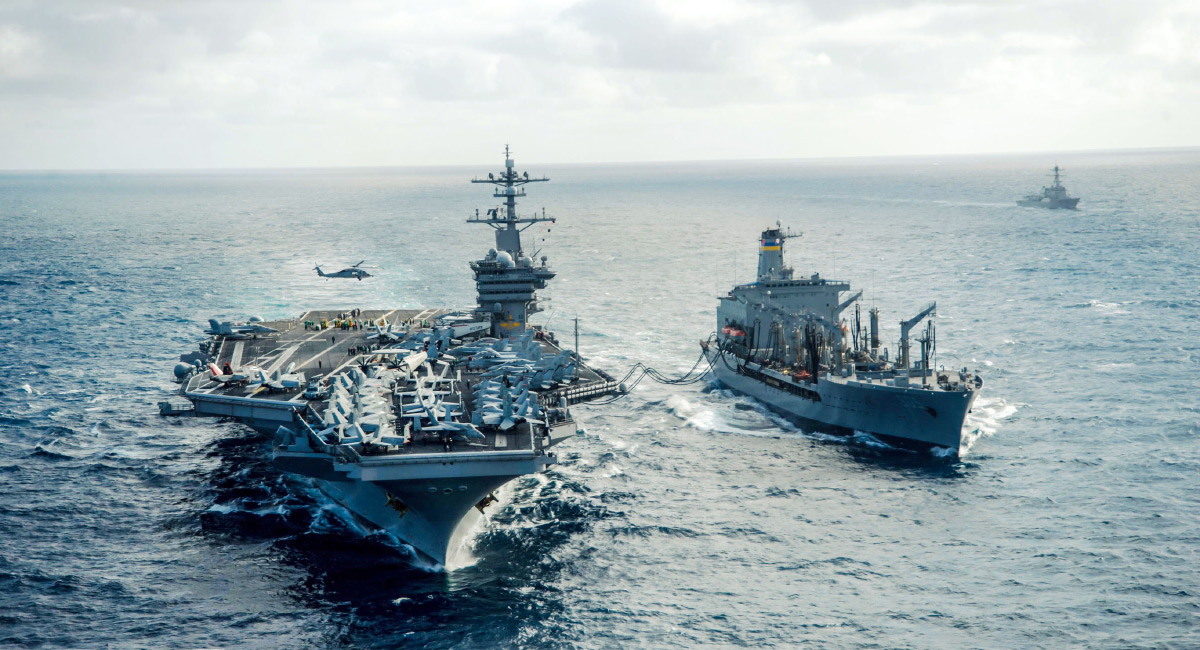The Trump administration’s national security strategy was supposed to refocus the U.S. military’s efforts on great power threats from China and Russia. However, like the prior Obama administration’s “pivot to Asia,” the Trump policy has been shipwrecked on the ever-demanding shoals of the Middle East.
For example, sources at the Pentagon admit that despite Trump’s national strategy and his pledge to terminate “endless wars” in the greater Middle East, General Mike Milley, his new chairman of the Joint Chiefs of Staff, is emphasizing Iran and Syria. Furthermore, instead of drawing down American forces in the region, the administration has sent 14,000 more troops to the Persian Gulf since May, including more than 3,000 to Saudi Arabia. In addition, President Trump has twice ordered American forces to be withdrawn from Syria, only for that order to be first ignored by the military and then largely offset by the hasty infusion of heavier forces to “guard” Syrian oil. Such backsliding in the Middle East is due to the administration’s hazy strategic focus.
The emphasis of Trump’s national security strategy on the great powers is commendable. However, that priority has not been implemented on the ground. With a $23 trillion national debt, the United States can no longer afford to police the globe. It must choose to let regional allies take up the slack in certain areas. Trump’s lack of experience in foreign policy, and the fact that our national security bureaucracies are still mired in Cold War thinking 30 years after the Berlin Wall fell, have led to muddled implementation of the strategy.
The president is naturally prone to wander away from his goals, with the “maximum pressure” campaign against Iran as a prime example. It is Trump’s own fault that America’s footprint hasn’t yet been reduced in a region of lessening strategic importance. Iran is “acting up” largely because the U.S. welshed on a perfectly good international agreement that limited its ability to get a nuclear weapon. Instead of getting relief from international economic sanctions in return for limiting its nuclear program, Iran got a Trump-coerced “maximum pressure” campaign by international banks and businesses.
As a result, Iran has retaliated by capturing oil tankers and launching air attacks on Saudi oil fields, which has in turn led to a U.S. infusion of more troops into the Persian Gulf region. Domestic unrest in Iran, caused in part by increased U.S. economic pressure, may cause the Iranians to lash out even more against American allies there. In Syria, U.S. troops are ridiculously being used to guard a limited supply of Syrian oil from Russia forces and Iranian militias (not from ISIS, which would not require heavy American units).
If the Persian Gulf was ever strategic for the United States (a dubious proposition), that time has now passed. The fracking boom of hydrocarbon production in the United States has made America once again the world’s largest petroleum producer, even further lessening the Middle East’s importance. But what about the threat of terrorism—that is, ISIS and al-Qaeda? Islamist fundamentalism has been around for centuries, but these two groups in particular were generated by the very American Middle Eastern interventionism that President Trump is supposed be reducing. When the United States legitimately draws down from this theater of lessening strategic value, those groups will be much less inclined to attack U.S. targets. However, current American policy inertia continues to mire us in the Greater Middle East—in Afghanistan, Syria, Iraq, Libya, Yemen, Somalia, Chad, and Mali—at the same time that we’re jousting with Iran.
But the model for an American withdrawal from the region is not that of the faux pullback from Syria, which did little beyond endangering U.S. military personnel and pulling the rug out from under friends who had sacrificed greatly to help the United States battle ISIS. Friends and allies in the region must be given adequate warning of U.S. withdrawal and sold adequate weapons to defend themselves. A responsible reordering of our security priorities is desperately needed, given the huge national debt and a rising China, the latter of which may eventually pose a very real security problem.

















